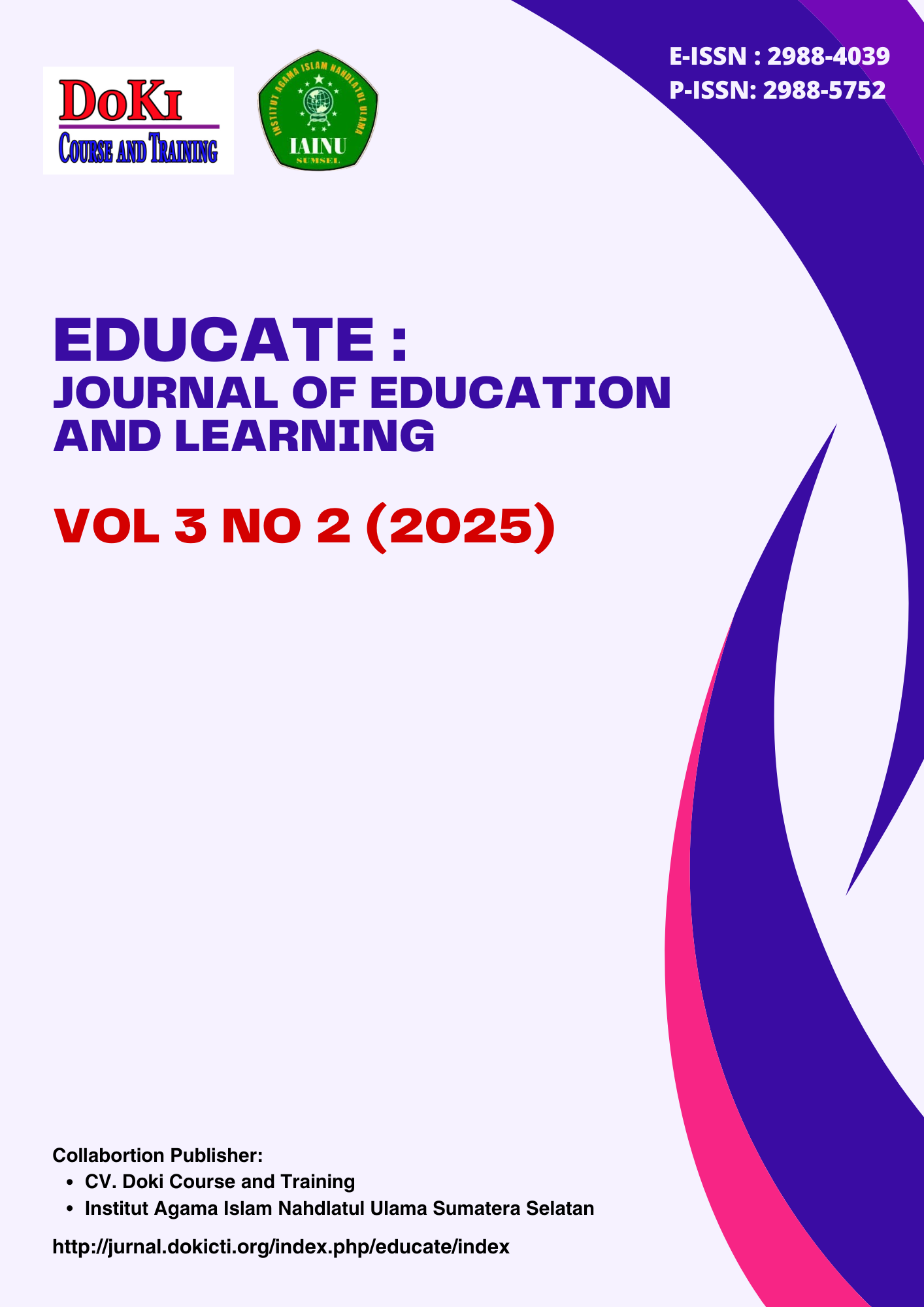The Influence Of Self-Regulation And Social Support On Academic Procrastination Among Students
DOI:
https://doi.org/10.61994/educate.v3i2.1127Keywords:
Academic procrastination, Self regulation, Social supportAbstract
This study investigates the influence of self-regulation and social support on academic procrastination among students at one of the private universities in Jakarta. Academic procrastination, defined as the intentional delay of academic tasks despite awareness of negative consequences, is a prevalent issue that undermines student performance, increases stress, and affects well-being. This quantitative research employed a census sampling method, involving 96 students from the Faculty of Education. Data were collected using validated psychometric scales: academic procrastination (14 items, α=0.833), self-regulation (19 items, α=0.839), and social support (18 items, α=0.946). Simple and multiple linear regression analyses, conducted with IBM SPSS Statistics 24, revealed significant results. Self-regulation exhibited a strong negative effect on academic procrastination (t=-7.189, p=0.000<0.05, β=-0.596), indicating that enhanced self-regulatory skills, such as goal-setting and time management, reduce procrastination tendencies. Social support also demonstrated a significant negative effect (t=-2.829, p=0.006<0.05, β=0.280), suggesting that encouragement from family and peers mitigates delay behaviors. Together, self-regulation and social support significantly predicted academic procrastination (F=25.629, p=0.000<0.05), explaining 35.5% of the variance. These findings highlight the critical roles of self-regulation and social support in addressing academic procrastination. Practically, the results advocate for interventions like time management workshops and peer support groups to foster academic productivity. This study contributes to educational psychology by offering evidence-based strategies to reduce procrastination, enhancing student success and well-being in higher education settings.
References
Afriansyah. (2019). Hubungan antara regulasi diri dan dukungan sosial teman dengan prokrastinasi dalam menyelesaikan skripsi pada mahasiswa Pendidikan Agama Islam Fakultas Tarbiyah dan Keguruan Universitas Islam Negeri Sulthan Thaha Saifuddin Jambi. Jurnal Pendidikan : Riset Dan Konseptual, 3(2), 99–108.
Bandura, A. (1986). Social Foundations of Thought and Action: A Social Cognitive Theory. Engelwood Cliffs. In Prentice Hall. (Vol. 16, Issue 1). Prentice-Hall.
DiMatteo, M. R. (2004). Social Support and Patient Adherence to Medical Treatment: A Meta-Analysis. Health Psychology, 23(2), 207–218. https://doi.org/10.1037/0278-6133.23.2.207
Febritama, S., & Sanjaya, E. L. (2018). Hubungan Antara Regulasi Diri Dengan Perilaku Prokastinasi Akademik Pada Mahasiswa. Jurnal Ecopsy, 5(2), 94. https://doi.org/10.20527/ecopsy.v5i2.5178
Ferrari, J. R., Johnson, J. L., & McCown, W. G. (1995). Procrastination and task avoidance: Theory, research, and treatment. Plenum Press.
Ghufron, M., & Risnawati, R. (2017). Teori-teori psikologi. Ar-Ruzz Media.
Sarafino, E. P. (2006). Health psychology: Biopsychosocial interactions. John Wiley & Sons.
Steel, P. (2007). The nature of procrastination: A meta-analytic and theoretical review of quintessential self-regulatory failure. Psychological Bulletin, 133(1), 65–94. https://doi.org/10.1037/0033-2909.133.1.65
Warsiyah. (2015). Prokrastinasi akademik pada mahasiswa. Penerbit Universitas Indonesia.
Zimmerman, B. J. (2000). Attaining self-regulation : A social cognitive perspective. In M. Boekaerts, P. R. Pintrich, & M. Zeidner (Eds.), handbook of self-Regulation. Cambridge, MA : Academic Press, 13–39.
Downloads
Published
Issue
Section
Categories
License
Copyright (c) 2025 Riska Santi Safitri, Vabresty Hareni, Nur Shabrina Octarisa, Rilla Sovitriana

This work is licensed under a Creative Commons Attribution-ShareAlike 4.0 International License.










